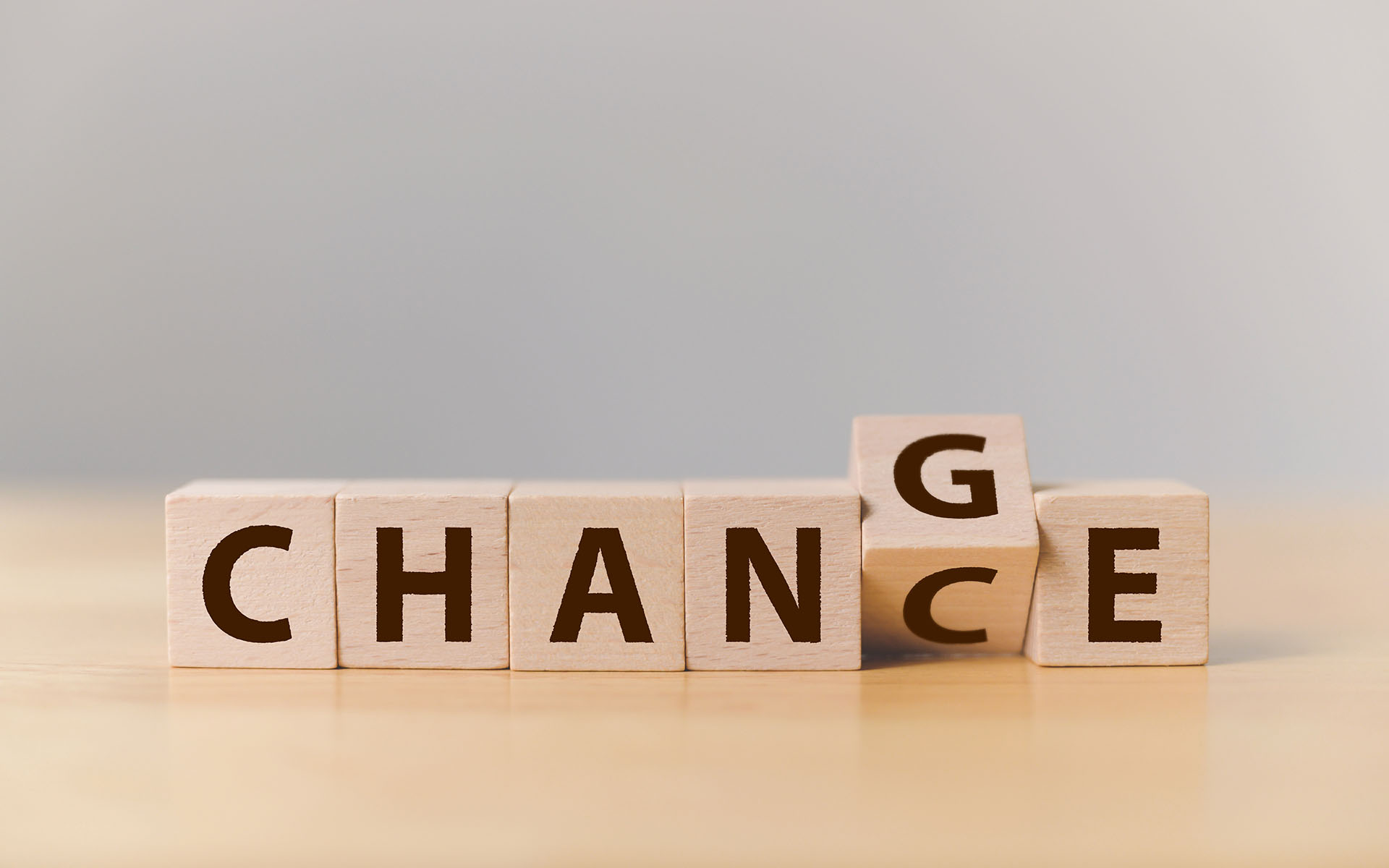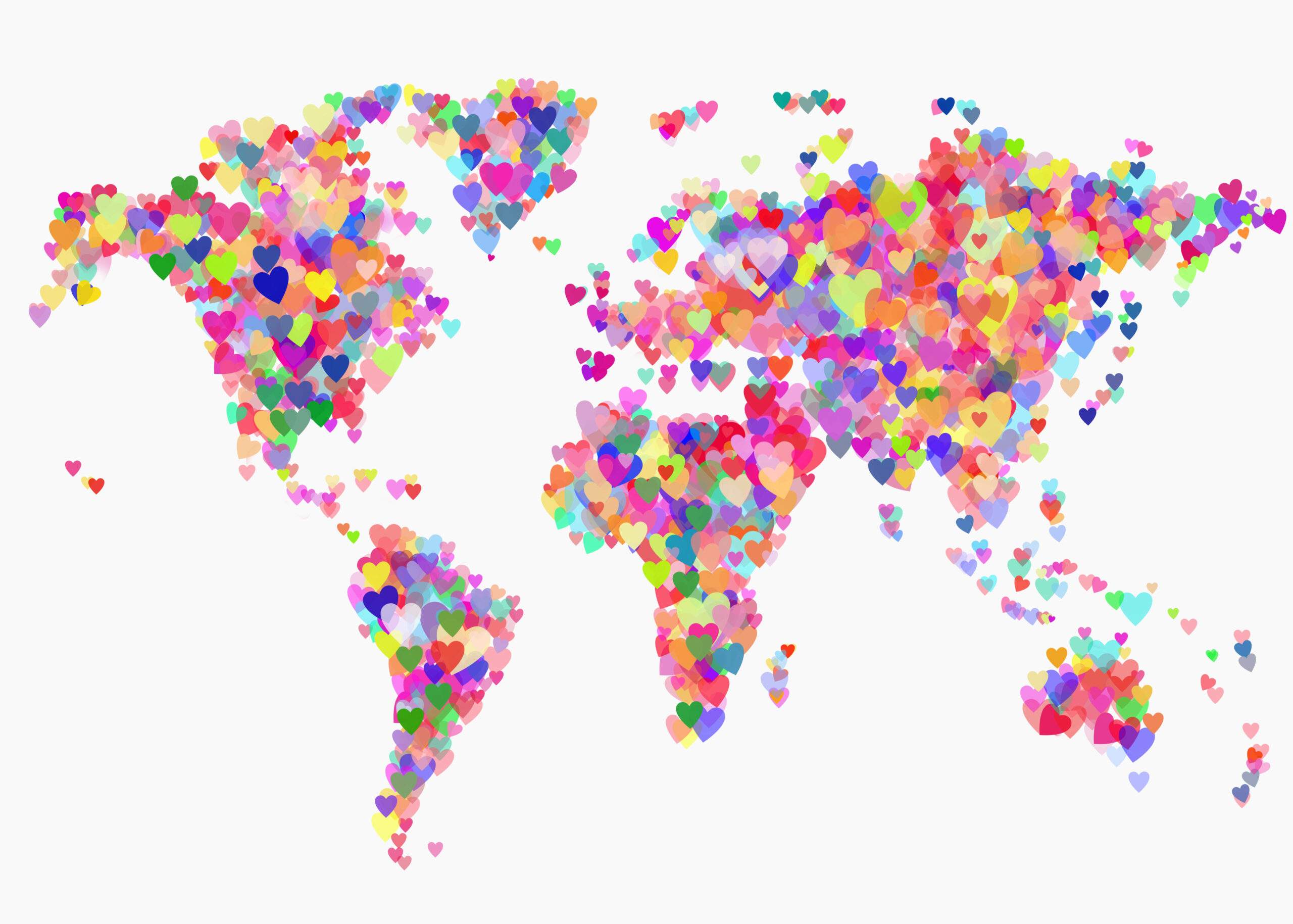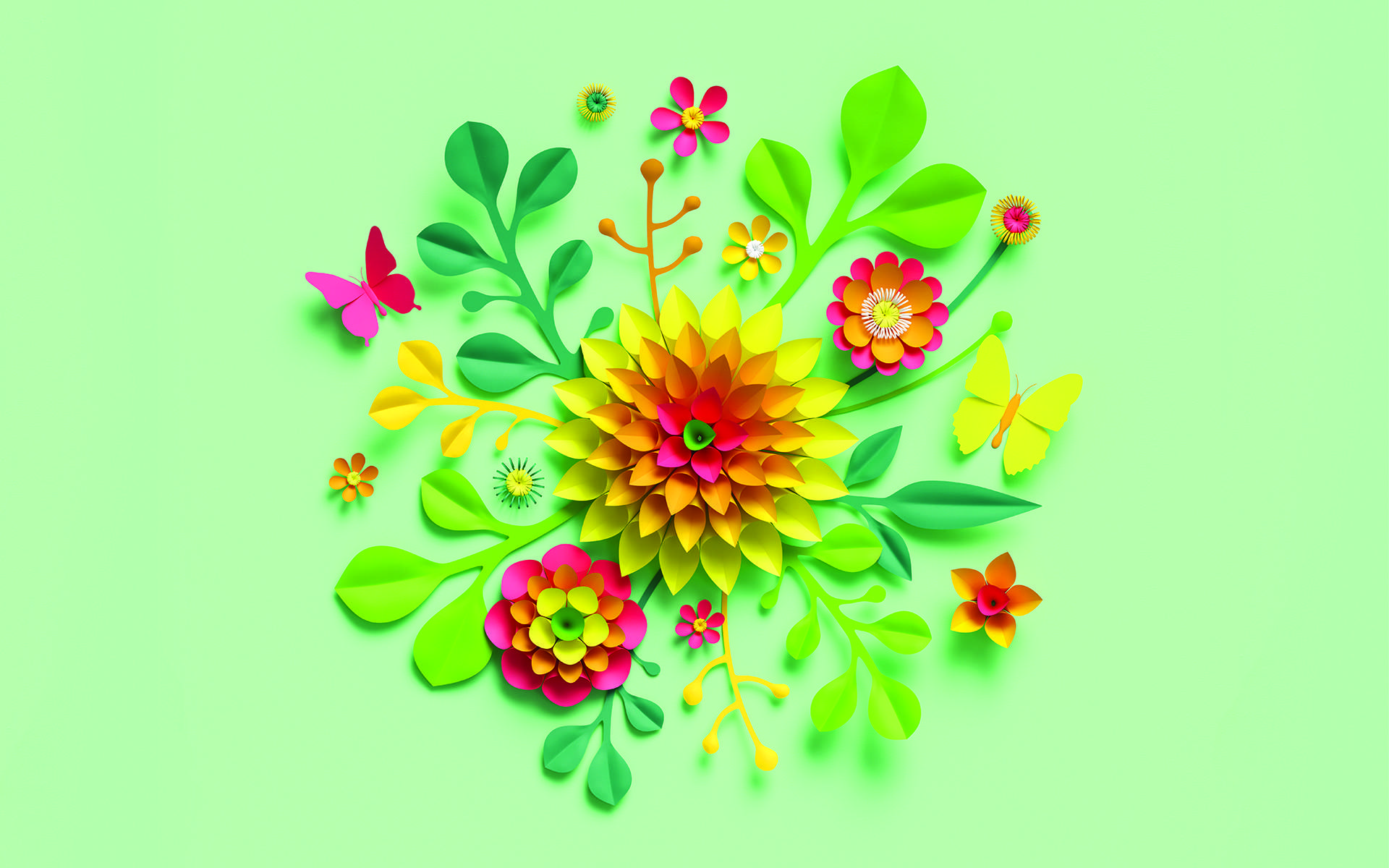The superb science journalist Sharon Begley, who wrote a regular column for Mindful until her untimely death in early 2021, was fond of studies of personality: the different types, how much they’re influenced by our environment and our relationships, and—most potently— whether our personalities can change.
Even if we’re hard-pressed to say precisely what personalities are, we know them. Some people are laid back, others stubborn, some happy-go-lucky, others a little gloomy. Some folks we know are sharp-tongued while others talk smooth. Some are rugged individualists; others conform. Arche-types capturing these human variations abound. In Southeast Asia, since ancient times, shadow puppets have depicted stock characters dancing, laughing, fighting, fleeing. The troupes of stereotypes in the Italian commedia dell’arte allowed audiences to laugh at themselves and each other. In modern times, we’ve created the Enneagram, the Myers-Briggs Type Indicator, the DISC Assessment, and countless other schemas to suss out and navigate the type of person we are.
Not only that, thinkers from Sun Tzu and Socrates to Maya Angelou and bell hooks have urged us to get to know who we are, the better to thrive in the world. If getting to know who we are is such an important goal in life, then, why are we so determined to change ourselves and to try to change others?
Indeed, can we actually change? And will practices like mindfulness change us? And further, will arguments and persuasion inspire other people to change for the better? Or should we just throw up our hands: People don’t change; let’s leave it at that.
When we consider whether anyone can change, we need to look at the framing behind the question first. When we ask whether a person can change, too often we’re indeed thinking in terms of personality: a long-term, ingrained way of being in the world, backed up by neural pathways and brain chemistry. These do not change rapidly, and in fact, familiarizing yourself with these tendencies and their effects is a key part of what it means to get to know yourself.
Trying to change what’s fundamental about yourself or anyone else is generally a nonstarter. If instead you first accept that as given, embrace it even, you can look at what can change in shorter periods of time: habits and views, what we actually do and say, and whether it does harm. If an outgoing person irritates a lot of people in an office, trying to make them less outgoing is hardly the place to start. Why not go out there with them, get to know them better? At that point, levers for change might present themselves. The problem is not who they are; it’s what they’re doing or maybe something they’re not seeing or you’re not seeing.
In my daily walk in the woods, there’s a tree trunk that branches into two smaller trunks. At that juncture, there’s a triangular cradle that fills with water, a tiny birdbath. When cold, it’s ice. When warm, it’s water. When hot, it vaporizes. When it rains, there’s water again. It’s always different. It’s always the same.
Change can feel so very hard to bring about, but it is inevitable. It will happen of its own accord. But it’s also in a constant interplay with continuity. In my daily walk in the woods, there’s a tree trunk that branches into two smaller trunks. At that juncture, there’s a triangular cradle that fills with water, a tiny birdbath. When cold, it’s ice. When warm, it’s water. When hot, it vaporizes. When it rains, there’s water again. It’s always different. It’s always the same.
There is always deep continuity beneath the changes on the surface. Human beings have such deep continuities: our identities and personalities. That’s why we can get to know our- selves, our tendencies, our tastes, our predilections, and, yes, our blind spots, faults, and foibles. Otherwise, we’d be unrecognizable, a TV screen randomly and rapidly changing channels.
Despite our deep continuities, though, we do change, and as Sharon Begley reported, even our personalities change, but not quickly. Living through times when tribalism seems at an all-time high, when views are held with adamantine vehemence—and broadcast day and night in every conceivable medium, with no breathing space—it seems impossible to imagine how polarities will diminish.
With time, though, and shifting circumstances, we all will change. And the perspective offered by mindfulness practice can help—both to bring about helpful change and respond to changes that leap out at us. It teaches us a kind of recipe for navigating change: time plus kindness plus curiosity plus not-knowing.
Let Time Pass
Though I loved my dad dearly as I was growing up, he also drove me crazy. He seemed authoritarian, rigid, and old-fashioned. I was the young- est of seven children and my dad was already old when I was born. When the full complement of our family was at home, I was too young to perceive the stresses he was under. Familiar ground shifted seismically for his generation. The Vietnam War raged. A brother served there, while other family members opposed the war. My oldest brother dropped out of college with only months to go, moved to Greenwich Village, brought home LSD on a sugar cube, and deposited it in the fridge. If I fast-forward to 10 years later, when I moved back home after college for a while, my dad had aged, like wine—philosophical, at times playful, wise, and very kind. He had a certain melancholy as well, a part of his personality. He was a realist, and the world saddened him.
During the period when I so desperately wanted my father to change—to think like me, to be younger—my eyes and ears were closed. I didn’t see or engage the whole of him. Perhaps that’s always the way with fathers and sons, parents and children, but the point remains. People are shifting and changing in ways we don’t see, and time will effect change. You cannot will a plant to grow faster. With attention, though, you can help it become healthier, and appreciate its growth, but that’s not likely if you’re in a rush and resenting the plant for not grow- ing according to your timetable.
The world unfolds differently when, rather than rushing, we persist patiently—persistence allows us to see change happen, to be there for it. A meditation group I wanted to be part of in Manhattan was very in-groupy. When I would show up for sessions, almost no one reached out to me. I wasn’t one of them. But I just kept showing up. Gradually, a kind of “you’re still here?” quality settled in. They opened up. They changed, and it changed me. Ever since, I’ve tried to pay kind attention to newcomers in any situation.
Meeting the Moment with Kindness
Trying to push change onto ourselves and others usually invites resistance, our innate mechanism for preserving the status quo. For example, when we start to meditate, part of us may say, “You don’t want to do this. You don’t need to do this. You don’t need this much intimate time with yourself. Who knows what you might uncover? Things are just fine.” Ah, but if things were totally fine, we wouldn’t be motivated to practice meditation in the first place.
Pushing back with an equal or greater force is the surest way not to loosen up that resistance—our own or someone else’s. Being kind, even in the simplest of ways, is a better start. If someone is yelling, will yelling back help?
We are kind because we care, because in our heart we want something better for everyone, and that starts with showing someone that our door is open, even if theirs doesn’t seem to be.
If they’ve been unkind, it’s natural to ask, Why would I be kind to them? In fact, we’re not being kind to the part of them that’s yelling. We’re being kind to the vulnerable human being some- where in there, who is lashing out— most likely from habits developed to get by, to make up for something they feel they’re not getting. We may not think kindness is warranted for people acting wrongly (or we ourselves when we’ve done something we’re not proud of), but as Sharon Salzberg points out in Real Change, creating an atmosphere of loving-kindness does not equate with condoning someone’s behavior or views. We are kind because we care, because in our heart we want something better for everyone, and that starts with showing someone that our door is open, even if theirs doesn’t seem to be.
Loretta Ross, a Black feminist activist and a co-founder of reproductive justice theory, wrote in the New York Times about working on a mountaintop in rural Tennessee with women whose partners were Ku Klux Klan. They wanted anti-racist training to help keep their children out of the group:
All day the women called me a “well-spoken colored girl” and inappropriately asked that I sing Negro spirituals. I naïvely thought at the time that all white people were way beyond those types of insulting anachronisms.
Instead of reacting, I responded. I couldn’t let my hurt feelings sabotage my agenda. I listened to how they joined the white supremacist movement.
By getting to know them, she reached the point where she could share with them how she felt when she was eight and her best friend called her by the N-word. She made real progress. Seemingly, the women were already inclined to change, but they had much further to go, and Loretta’s basic kindness allowed them to take the next steps.
Kindness is often expressed through simple ritual. In many cultures, offering tea or some other kind of drink, and some food, even if just as a token, is the first gesture. Many cultures hold in high regard the grandmother’s kitchen—the place where an elder offers you wisdom that comes out of the simple warmth of a cup of tea, a bite to eat. And a more relaxed sense of time, and timing.
Exploring with Curiosity
When we let go of the impulse to rush and we let our hearts be open, our intrinsic curiosity can emerge, which we can inspire in others as well. We explore rather than implore. We become whisperers.
That seems to be the principle at the heart of The Winter Institute’s Welcome Table, a program that brings healing to communities with a history of distrust. In the June 2016 issue of Mindful, Barry Yeoman wrote of the program’s monthly meetings, “where trained facilitators help participants tell and listen to personal stories. One goal of these conversations is to foster relationships across race lines—ties that later translate into civic activities aimed at promoting racial justice.” Storytelling allows curious exploration of another’s experience, in a way that’s simply not possible in the thrust and parry (and bloodletting) that occurs on social media.
Even the most stubborn and intractable can at times be moved by patient, innovative, and adaptive exploring.
Even the most stubborn and intractable can at times be moved by patient, innovative, and adaptive exploring. In his new book, Think Again: The Power of Knowing What You Don’t Know, and a recent article in Harvard Business Review, organizational psychologist Adam Grant tells stories about how notoriously difficult it was to dislodge Steve Jobs from his fixed views. In one famous case, Jobs passionately opposed Apple having a phone. He compiled a list of reasons, foremost among them was that only nerds would want it.
Key people, though, saw a phone in Apple’s future, Grant writes, and sought ways to spark his curiosity, for example by asking, “If Apple made a phone, how beautiful and elegant could it be?” It opened a door in his mind, so they persisted for months of meetings, secretly building prototypes, which they eventually showed to Jobs. A dialogue started. They refined designs. They did not fight him. Rather, they found a way to his heart by asking questions and presenting possibilities, and a groundbreaking device emerged. (Of course, now the change we need is for all of us to learn how to unhook from our addition to this kind of device! Change begets more change.)
Practice Don’t-Know Mind
In our eagerness to change ourselves or to change others, our mind races, generating lots of different futures, but in fact, none of these futures is real. They may suggest possibilities, but they are not outcomes. They’re phantoms in the mind.
In his decades of work with dying people, Frank Ostaseski developed five principles, which he presents in his book The Five Invitations: Discovering What Death Can Teach Us About Living Fully. The last is Cultivate Don’t-Know Mind. We like to feel we ought to know how the story turns out, and at times we figure we’ve got a pretty good guess, but in fact, we’re often surprised by how a story unfolds. A few I’ve seen: A stockbroker chucks it all to publish books about the meaning of life, a college administrator starts an organic farm, children many have written off eventually become teachers in the yoga program started at their Baltimore grade school.
Frank shares a potent example from his own life about a surprising turnaround. As a teenager, he was molested for several years by a parish priest, a friend of the family. It left him deeply scarred and in fact homophobic. Though he’s now clear that there’s no connection between pedophilia and homosexuality, at the time they’d become conflated in his mind. He was also deeply distrustful of authority and organized religion, but gradually he allowed himself to follow the Zen teacher Stephen Levine, who seemed neither religious nor overly authoritarian. As meditation practice opened him more to his deep feelings, trauma from his past gnawed at him. He decided to disclose to Stephen what he was going through. Levine suggested he work with people dying of AIDS. He freaked out:
I grabbed him by his shirt, threw him up against the wall, and yelled, “Are you crazy?” My inner hurt adolescent was exploding. In that moment, all I could experience were prohibitions against this idea and a great deal of pent-up anger. What a ridiculous notion, how absurd, I thought, that I should serve the very type of person who, in my confused mind, had caused me so much harm.
But even as the word No! left my mouth, I knew Stephen was right. It was a moment of sudden awareness, a recognition of the meaning that was to be found in my suffering. I had to do it.
The groundbreaking work he did as the first director of the Zen Hospice Project changed his life forever, and immeasurably benefited many others. And it emerged from the dis- mantling of fixed ideas about future possibilities, about who he was and who others were.
One day, Rhonda Magee discovered something in the middle of a mindfulness exercise she’d done many times with her law students: the classic raisin exercise, where one learns to experience the simplest of things fully. Something new emerged that day when the students were asked to describe their experience. For several of them, it was more than a convenient snack. They came from California farm-worker families. They described the depth of meaning this dried fruit had in their lives, symbolizing toil and struggle and people doing whatever they could to support a family.
Perhaps no one in that class has seen a raisin the same way since.
Before we try to change something—about ourselves or another—perhaps it would be wise to first leave some time and space, then to generate kindness and caring, and finally see things with fresh eyes, every day, as fully as we can, suspending judgment.
READ MORE
In Awe of All Our Relations
When we allow our current framework of the world to be shaken up, writes founding editor Barry Boyce, we can choose to make space for wise and more sustainable ways of being in relationship with each other and the earth.
Read More
True Freedom: Caring Deeply Without Striving
When we awaken our fearless heart and honor our desire to be in communion with others—valuing connection over control—joy emerges of its own accord.
Read More
A User’s Guide to a Journey Called Mindfulness
Mindfulness meditation is not a one-time thing. You do it again and again. As you keep doing it, a variety of challenges emerge. Here’s some advice for traveling the path of meditation.
Read More






